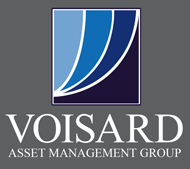The CARES Act was passed on March 27, 2020, and contains many provisions that will have a profound impact on the individual’s financial circumstances. We will not cover them all but will address the two changes we feel will affect our clients most when planning for 2020.
Required Minimum Distributions (RMD)
There are no required minimum distributions for 2020. All RMD’s have been waived for 2020, including those from IRA’s, employer sponsored retirement plans, and inherited IRA accounts. If you are taking distributions from accounts that previously had RMD requirements, it may make sense to stop the distributions to reduce your tax burden. We cannot make a sweeping recommendation as each client’s circumstance is different, and therefore our strategies in taking advantage of this will be different for each client. If you are a client of our firm, you can expect to hear from us soon if a change is warranted regarding your current distribution strategy.
If you have already taken your RMD for 2020 and it is beneficial for your circumstance to take advantage of this item in the CARES Act, there are two ways to reverse the RMD and return it back to your IRA. The first and simplest way is by returning the funds within 60 days of the distribution, provided that you have not made another 60-day rollover in the last 365 days. If the 60 days has passed, you can repay your account within the next three years, although you must be able to show that the COVID-19 crises negatively impacted you to qualify. These qualifications are listed below under “Coronavirus-Related Distributions.”
If you have an inherited IRA and have already taken the RMD, there is no option to return the funds. The rules for beneficiary IRAs have not changed and there is no way to get the funds back into the inherited IRA account.
Coronavirus-Related Distributions
The CARES Act created Coronavirus-Related Distributions, which is much like the relief offered during previous Federally declared disasters. Coronavirus-Related Distributions can be taken from retirement accounts up to $100,000, must be within the 2020 calendar year and taken by an individual who has been negatively impacted by COVID-19. To qualify, an individual must meet one of the following criteria:
- Have been diagnosed with COVID-19 or have a spouse or dependent who was diagnosed.
- Experience adverse financial consequences as a result of:
- Being quarantined, furloughed, laid off, or having work hours reduced due to the virus.
- Being unable to work due to lack of childcare due to the virus.
- Having your business closed or hours reduced due to the virus.
- Other factors that the IRS deems to be acceptable (which are currently undefined).
If you meet one of the criteria above, you will be exempt from the 10% early distribution penalty. There is no mandatory 20% federal withholding requirement from employer-sponsored retirement plans. While those are nice benefits, the biggest advantage to Coronavirus-Related Distributions is that you can repay these distributions over the following three years. Repaying your account would eliminate the taxability of the distribution. If there is no ability to repay the account, the taxable income may be split evenly over 2020, 2021, and 2022, or elect to include the taxable income in their 2020 income. This allows an individual to take the taxability all at once or spread the income (distribution) over three years to reduce the tax burden.
We are just scratching the surface of the CARES Act but wanted to be sure our clients are informed of the items that will affect distribution strategies, Roth conversion strategies and tax planning for 2020. If you would like additional information, please feel welcome to contact the team at Voisard to discuss how this applies to your individual circumstance. We are happy to assist.



